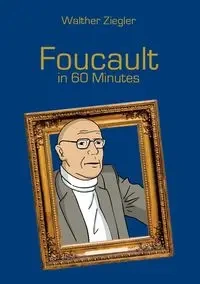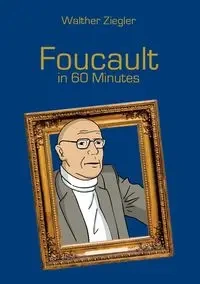Foucault in 60 Minutes - Ziegler Walther
Foucault in 60 Minutes - Ziegler Walther
AutorzyZiegler Walther
EAN: 9783753422688
Marka
Symbol
321HAF03527KS
Rok wydania
2021
Strony
152
Oprawa
Miekka
Format
14.8x21.0cm
Język
angielski

Bez ryzyka
14 dni na łatwy zwrot

Szeroki asortyment
ponad milion pozycji

Niskie ceny i rabaty
nawet do 50% każdego dnia
Niepotwierdzona zakupem
Ocena: /5
Marka
Symbol
321HAF03527KS
Kod producenta
9783753422688
Rok wydania
2021
Strony
152
Oprawa
Miekka
Format
14.8x21.0cm
Język
angielski
Autorzy
Ziegler Walther

Foucault counts as one of the great Post-Structuralists. Already his book-titles -"History of Madness", "Discipline and Punish", "The Use of Pleasure", "The Order of Things" - show his entirely new way of looking at things. He is also one of those philosophers who have become more, not less, influential after their death. This should both please and worry us. It is pleasing that Foucault's key ideas have remained so vital and relevant but worrying also because the main one among these ideas is so disturbing. "Man is erased, like a face drawn in the sand": With this thesis of "the end of Man", Foucault does not mean that we are about to die out as a species, for example through climate change. He means only that Man as we have hitherto known him, as a free, self-determined being spontaneously enjoying his own pleasures, is vanishing. This "Man" is being dissolved into the discourses and structures of our "carceral society", in indeed just the way that a face drawn in the sand is dissolved by the incoming tide. In the 18th century there was invented a new circular prison which allowed the warder to observe all the prisoners from a single central point. This feeling of being always observed has, Foucault argues, become the model for our whole society. But Foucault shows us, besides the origin of the structures of our coercive society, also a certain model for a modern "art of living". What does this model look like? Is it still possible at all to break out, as a true individual, from this "coercive society"? Is Foucault right to universalize his "prison paradigm" and say that we all feel constantly observed? Of the disturbing present relevance of his thoughts, in any case, there can be no doubt. The most important of these thoughts are explained here using over 100 key quotes. The book appears as part of the popular series "Great Thinkers in 60 Minutes".
EAN: 9783753422688
EAN: 9783753422688
Niepotwierdzona zakupem
Ocena: /5
Zapytaj o produkt
Niepotwierdzona zakupem
Ocena: /5
Napisz swoją opinię

